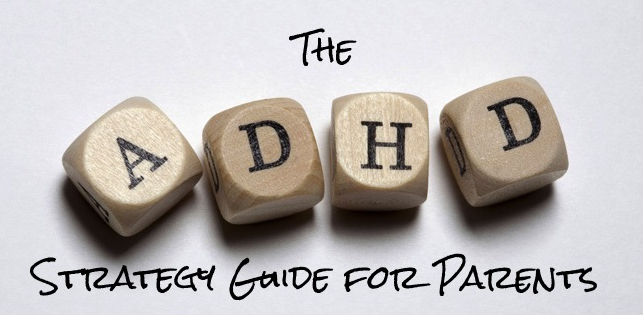
There are very few times of year that are as polarizing amongst people as the holidays. Some find it to be a magical season full of cheer, togetherness, and gifts galore. Others view the holidays like a stretch of bad, unpaved road—just white knuckling their way through until it passes. Generally, people’s attitudes toward the holidays are closely linked to the highs or lows they experience going into the season. Finances, family issues, work, friends…it all factors into the holly jolly equation to shape what we think of the holidays. Those who struggle with the season of giving are not alone, and can always use a little extra support to make it through. So, regardless of your perception of the holidays, here are a few quick tips to make them more emotionally manageable.
Have vs. Have Not
The holiday season comes with the inevitable onslaught of commercials for gifts and things we are enticed to want. Clever advertising and marketing campaigns are designed to sell us the image of the lifestyle we are told to strive for, rather than the one we actually have; mainly because companies want people to buy their products. It’s easy to fall victim to seasonal tunnel vision, focusing on the things we don’t have in our lives versus what’s right in front of us. This trend also goes beyond mere consumerism. The holidays paint pictures of having the ideal family that’s loving, giving, never fights without resolving their differences, and always comes out stronger in the end. If you don’t believe me, turn on the Hallmark Channel at any hour, day or night, during the months of November and December.
Sure, focusing on what we lack helps us to establish goals, but if it goes unchecked it can quickly lead to feelings of inadequacy that exacerbate sadness and anger. Most of our lives right now are probably far from perfect, but that doesn’t mean there aren’t valuable things in them worth our attention. These don’t have to be items of monetary value (although they can be if that’s your thing). A close friend, a loving spouse, children, physical/mental health, a good job, a passion project—these can all be things we hold dear. Find your blessings where you can and count them.
The Link Between Body and Mood
In the winter, many of us instinctively act like hibernating bears. We pack on the pounds and want to find a nice warm place to relax and wait out the cold. During the holidays this instinct goes into overdrive with the addition of cookies, stuffing, heavy meats, candy canes, gingerbread, egg nog, potato latkes, fruit cake…you get the idea. Suddenly our pants don’t fit and it’s WAY too cold outside to go for a run.
The problem with treating our bodies like a playground rather than a temple (other than a potential coronary) is that it wreaks havoc on our mood. Sugar crashes, food comas, and cabin fever with family members work in concert to cause us to become irritable, impatient, antisocial, tired, and not to mention responsible for the worst digestive gas imaginable. To combat this holiday trend, be mindful of what we eat. Sure, have a few indulgences, but try to keep it in moderation and balance it with something green and leafy besides the Christmas tree. Also, try working in some light exercise here and there to burn a few calories and blow off steam. If you’re in a cold weather state, some small workouts at home can do the trick (pushups, sit-ups, lunges, squats). Also, don’t underestimate the magic of the great outdoors. So bundle up and go for a walk in the winter wonderland to help clear your head.
Take Family in Small Bites
As adults, we’ve likely become accustomed to functioning independently and handling the daily responsibilities that come with it (probably). Well, now that we’re spending the holidays with the family that raised us, it’s time to forget all that! Get ready for family dynamics to come rushing back with a vengeance. For some, this may not be a bad thing. For others, it conjures memories of parents reminding you how to perform even the simplest of tasks, sibling rivalries, relatives second guessing our career choices, and who can leave out passive aggressive in-laws? Family has a way of unwittingly stripping us of how much we’ve grown, which leads us to feel resentful and ultimately dampens our mood.
For those headed home for the holidays that expect to spend time with family (especially family they don’t see very often) it’s best to break up the exposure into chunks to prevent overload. Try keeping certain interactions brief if there is a high probability of conflict. Avoid hot-button discussion topics. The common temptation is to tell off insensitive family members, but that will often make us look like the crazy ones—especially if open, respectful family communication is still on the wish list. Instead, try taking five. Go for a walk, take a nap, read a book, or check in with a friend and swap war stories about their family feud. And remember, people generally love to talk about themselves. So the best way to shift unwanted focus away from ourselves is to take an interest in others.
Develop A Holiday Routine
Some people thrive on routine. Their world makes sense when things follow a well-polished schedule that incorporates work, family, friends, and self-care. Unfortunately, the holiday season excels at throwing order into upheaval. Special events, odd work hours, family gatherings, the kids are out of school and MUST be entertained…it can be a real mess. A far departure from our daily routine can easily cause us to feel disorganized and depressed, particularly when we consider that self-care is generally the first casualty.
A way to boost morale and maintain some semblance of order to the holidays is to create a flexible structure. Craft a holiday routine that includes elements of your normal regimen, but can also accommodate special circumstances and X-factors. Make a go-to list of a couple fun activities for the kids that are readily available. Tack on extra time to scheduled outings and events to account for transition time (which always takes family f-o-r-e-v-e-r for some reason). Don’t be afraid to recruit family members to help manage obligations so you can get some work done or grab some restorative down time.
What the Holidays Mean to You
Many people find the holidays to be particularly challenging emotionally because of what they represent. If we lost a loved one, for example, the holidays can be a cruel reminder of how life used to be at this time of year. Loneliness during the holiday season is common among people who are struggling with loss in any form: a breakup, a divorce, the passing of a close friend or relative. Combine that heartache with ubiquitous messages about togetherness and good cheer and it can drive anyone to Scrooge-town.
If there is a universal truth to be said about depression, it’s that it feeds off isolation. When we feel sad we instinctively want to be alone to deal with our problems privately—and to avoid the guilt that comes with having someone worry about us. This is a healthy, and normal part of the process required to work through our thoughts and feelings. However, it’s important to regulate our isolation, and balance it with support from friends, family, and whomever else we can turn to that we trust. The reason we need others is simple. If we are in a hopeless mindset, sitting alone with no one else to offer us perspective or contrary ideas, we can easily fall into the vortex of negativistic thinking. Sadness fuels anger, which gives rise to resentment, and all the while we feel that no one else “gets it” as we recede further from the rest of humanity. In short, one way to help alleviate depression is to starve it of isolation. Find a way to make a connection.
Manage Expectations and Challenge Perceptions
Fact: our perspective dictates our reality. How we view anything, including the holidays, will ultimately determine how we experience them. If we cringe in anticipation of family get-togethers laced with superficial conversations with relatives in which we must repeatedly regurgitate our “life stats” for the year, we stand little chance of enjoying ourselves. Yet, if we consciously alter our perspective and manage expectations of the experience, suddenly the dynamic can be different.
Using the “family get-together” example, let’s first identify expectations. If the chronic family “stop-n-chat” bothers us, it may be that we are unhappy being peppered with shallow questions, or wish our families had more meaningful conversations. Consider that perhaps we are holding family to a standard of closeness that is unrealistic for them. If we adapt our expectations to accept family as they are, we are far less likely to be disappointed.
With regard to perspective, if we go into a situation convinced that we will have a bad experience, we most certainly will. The mind is keen on highlighting evidence to confirm an existing belief we hold, while quickly dismissing contradictory information. It’s called confirmation bias. A potential way to shift perspective here is to focus outwardly, rather than inward. Maybe you cannot stand holiday family dinners, but you know it makes your parents happy that everyone is together. So putting up with family might help you to feel good that you are doing right by others. Another approach is to sidestep the common “all-or-nothing” mindset. This can be achieved by shifting focus away from viewing the holidays collectively, averaging out the experiences to determine if they were generally “bad” or “good,” and instead pay attention to individual experiences that can be uplifting. Maybe there was a moment when we actually had one great conversation with a relative, or found joy in playing with a baby cousin, or saw someone light up when we gave them a gift they really wanted.
A Final Thought
No matter what the holidays have in store for you, good or bad, be kind to yourself. Too often our frustration with the season gets driven inward as we silently rebuke ourselves for being a grinch that watches others seem perfectly happy. It’s okay that the holidays are hard for some of us. It comes with the territory. But if this truly is the season of giving, first give yourself some love, then things might not seem so depressing after all.








